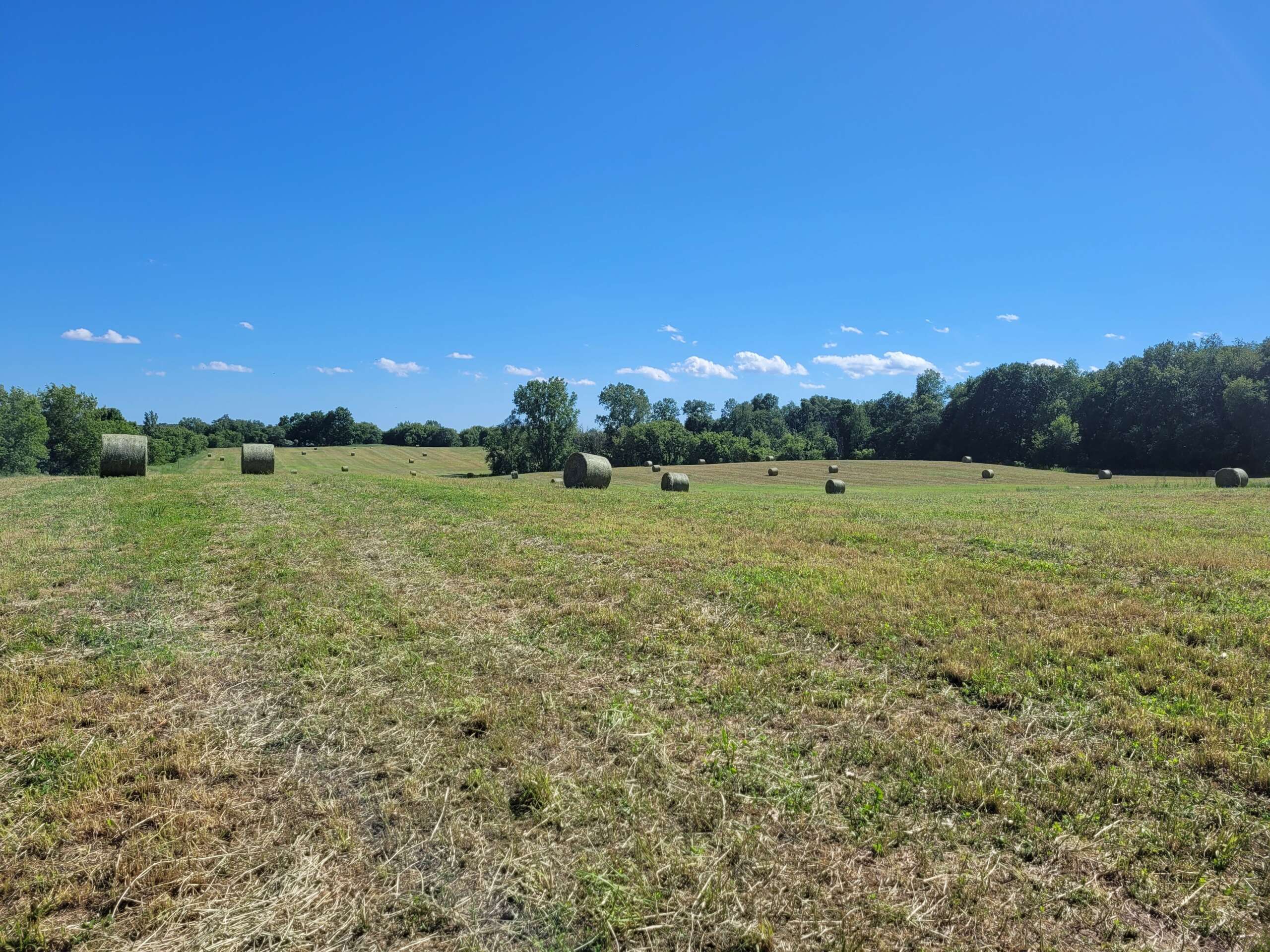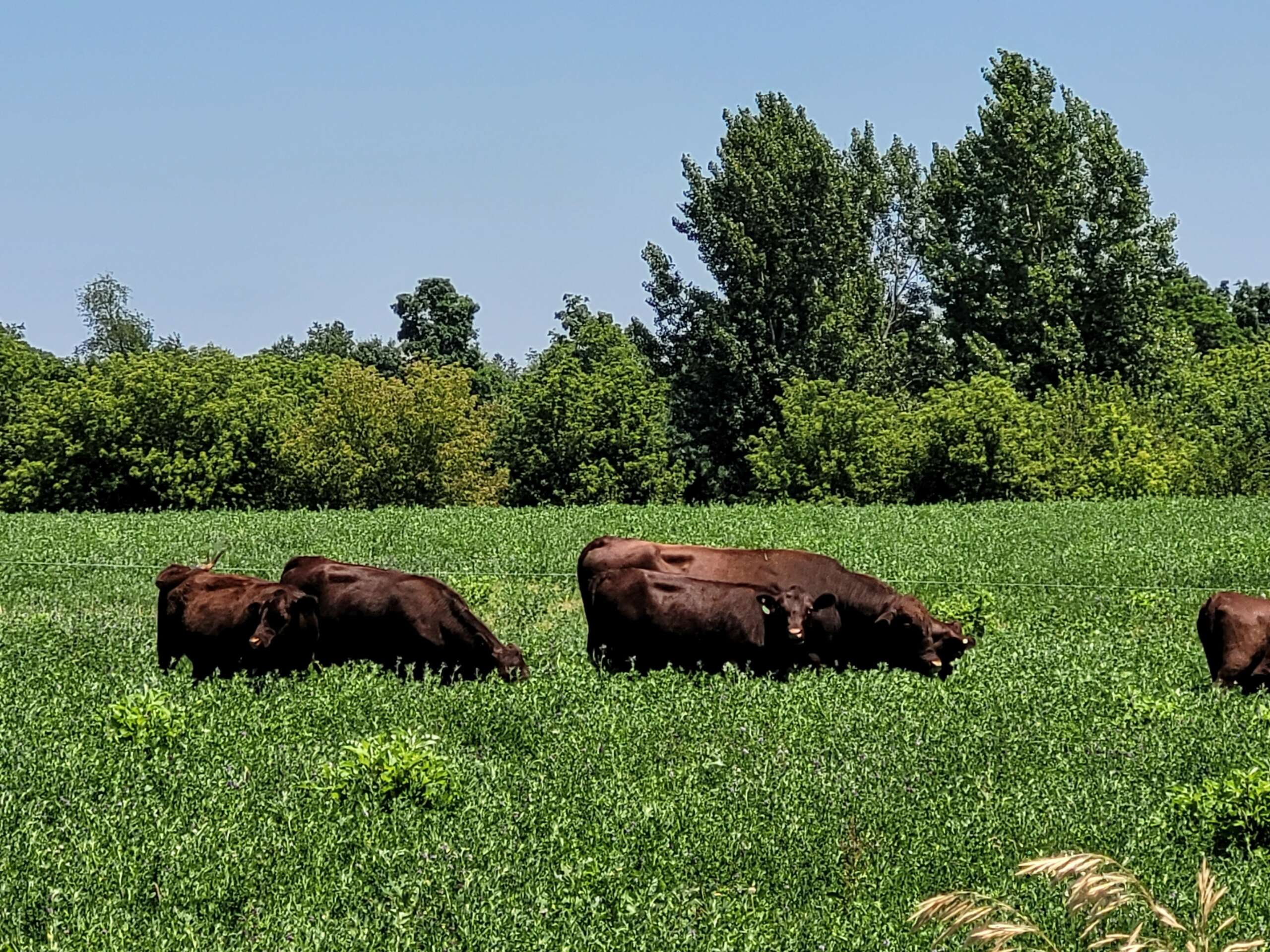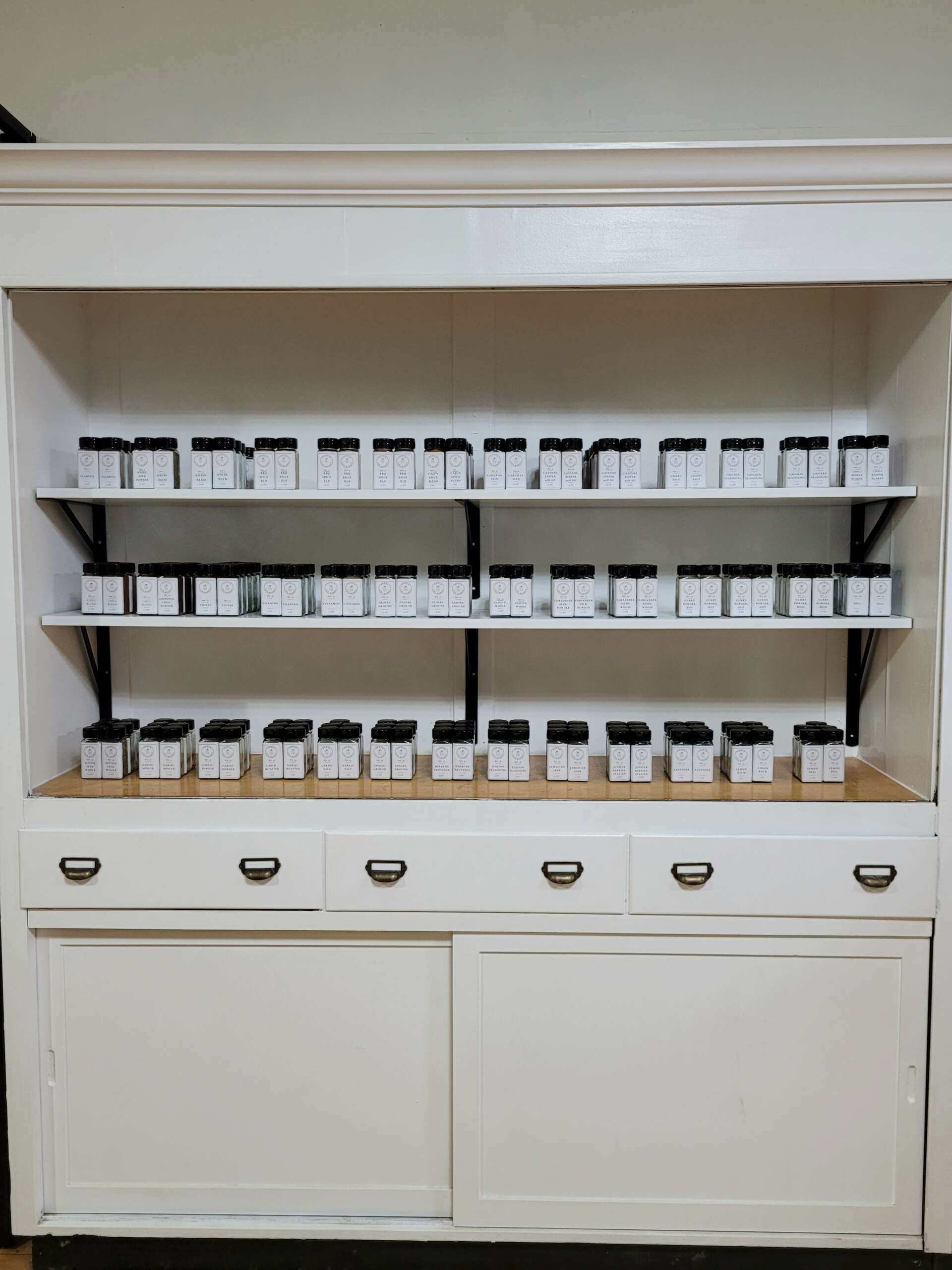We’re excited to introduce you to the always interesting and insightful Stephanie Hoffer. We hope you’ll enjoy our conversation with Stephanie below.
Stephanie, thanks for taking the time to share your stories with us today Let’s start with the story of your mission. What should we know?
Living a healthy lifestyle has always been important to me. When my husband and I decided to expand our duo to a trio, I knew I only wanted to feed our daughter real food. While other toddlers at daycare were eating chicken nuggets or lunchables for their lunch, our daughter had fresh salad with chicken, strawberries, and cheese. She had freshly diced peaches (not canned) for her snack. Her teachers were envious.
But the more I learned about where our food came from (even the “free range” eggs and “organic” fruits and vegetables), the more distrustful I became of our food system. How does “free range” mean “crammed tightly into a concrete structure pecking each other to death because they can’t move and are super stressed”?
We are fortunate to be able to grow a large variety of fruits and vegetables in mid-Michigan, and I set out to grow as much of our own food as I could with only about 200 sq ft of sunshine. But we had lettuce, arugula, spinach, beets, peas, beans, tomatoes, peppers, fresh herbs, grapes, peaches, pears, and so much more throughout the growing season! We had laying hens, too…although it was questionable whether zoning allowed them. While we made the most of our small space, I longed for more.
Meanwhile, my career as a medical malpractice attorney was thriving. But that also meant constantly seeing death and disease. Most malpractice occurs on people that are already sick or unhealthy. Prevention is the best medicine. So much medical care can be avoided simply by eating clean and healthy and exercising. My line of work has been a huge motivator for putting in the time and effort to eat super healthy.
My job was super stressful, and I started dreaming about what retirement would look like. My husband and I thought it would be great to retire to a large piece of land and farm. When you’re in your 30’s, though, retirement seems like a lifetime away (that sure does change when you’re in your 40’s looking at your retirement account balance!!!). We started considering getting a piece of land Up North (where land prices were much lower) and spending weekends farming. I really wanted live stock, and we ultimately decided being weekend farmers was not practical.
So we continued on with our suburban garden plot and less-than-legal chickens. But I became immersed in learning more about our food systems and culture, as well as the nitty-gritty about the effects of diet on health. I learned about food deserts, lack of education in our country about food and health, lack of access to healthy options, and the intentional misleading marketing that targets those most vulnerable. I added “improve food system” to my never-ending to-do list.
The urge to have more land and raise our own livestock continued. The more I learned, the more my wish list grew. I wanted bees, a full orchard, a greenhouse to extend the growing season… And as the list grew, I realized there was no way we could wait until we were in our late 60’s or early 70’s to start! I wouldn’t have enough time to watch it grow and develop, and I wouldn’t have the energy to put in the necessary work.
So I started peeking at properties on Zillow “just to look at prices.” It was there that I found our farm. But it was expensive (or so I felt at the time) – more money than I ever thought we would spend on a house at the time. So I tried to put it out of my mind. For six months, though, I kept checking in on it. Every so often, the sellers lowered the price. It got to a point where we would be comfortable taking it on. And I figured we’d make enough money selling farm products to make up the difference from what we were currently paying for housing. (Lesson quickly learned – it is near impossible to make money farming!!!)
With a story for a different day, we ended up buying the farm right about when Covid hit. I had been planning on pork being our primary money maker, but you might remember that Covid shutdowns resulted in a processing nightmare. So I pivoted to produce. That first season, we sold at a market in the city nearby, as well as through an online retailer. We didn’t make any money, but I loved sharing in the market’s mission of bringing affordable, fresh, organically grown produce, to an inner-city neighborhood that was otherwise a food desert. It was truly inspirational.
The next season, I added a farmer’s market to our distribution channels. And we still didn’t make any money. I started thinking more about opening a farm store. It quickly became a passion.
Our farm is between two small towns. One of those towns lacks easy access to high-quality, affordable food. Most people live less than .9 miles from a grocery store. But if you live in our city-center, you are about 3 miles from a grocery store. I was shocked by the difference in quality and availability of produce and high quality meat between my former grocery store in my fancy suburb and the stores on the outskirts of this poorer community. That sealed the deal for me. I was convinced that I could bring the highest quality, organically grown produce and antibiotic / hormone free, ethically-raised meat to this community while keeping prices low enough for the average family to be able to afford to eat healthy.
I feel that access to affordable, healthy, real food should be a basic human right in our country. So Ionia City Market was born. In addition to providing access to healthy, affordable food, we work to enhance our community in other ways. We purchased a dilapidated building that we are remodeling to include affordable housing above our store. We offer other local growers and local artisans a place to sell their products. Instead of paying them wholesale prices and clearing them out of a single item in a week, they are free to put what they want in the store, set their own prices, and share a portion of their profits with us. In the six months we have been open, we have helped launch about 5 brand new businesses and supported dozens of already-existing local growers and artisans.


Stephanie, before we move on to more of these sorts of questions, can you take some time to bring our readers up to speed on you and what you do?
One of the best and most unique aspects of Ionia City Market is that it brings together our local community. So many members of our town care about where their food comes from and want to shop local. We give them access to growers and local artisans that they otherwise may not know about or would need to travel to multiple locations to patron. Having our suppliers set their own prices ensures that they make the money they need. Giving our growers market access and allowing them to bring what they have is a dream for small market gardeners! For our growers, gone are the days of needing to sell at wholesale prices at the whim of whatever the “local section” of the grocery store wants to purchase, running you out of lettuce one week while your zucchini grows too large to sell, or spending an entire day sitting at a farmer’s market and at the end of the day, realizing you only can pay yourself $2 / hour. For shoppers and suppliers, ICM provides the best of all worlds.



Can you talk to us about how your funded your business?
I have fully funded my farm and ICM from our savings. I hope that isn’t discouraging to new entrepreneurs. But having already started another business (my law firm), I knew that starting a business would be super-stressful. While it is scary having our own money on the line, it would be scarier for me having a looming business loan to pay if the store failed. There were many sleepless nights before we opened and several after. There were times I didn’t see a path to profitability. There were times I thought we should throw in the towel. But my husband would just remind me that the worst case scenario would be that we were out some money. Our house wasn’t on the line. We would never have a lender breathing down our neck. We could still pay all of our bills wit our day jobs. If it failed, it would be nothing more than an expensive failed experiment and an awesome life experience.



Any insights you can share with us about how you built up your social media presence?
ICM is a community market, so I wanted our community to be heavily invested in our development. Facebook is our primary marketing platform. We started sharing our story about 6 months before we opened (it was supposed to be 3 months, but things never happen as planned…). People were excited to follow our journey!
We use our platform to share our growing practices and support our local suppliers. Social media is the best way to tell your story and develop a loyal base. Many times, a new customer will go through our entire FB page liking posts all the way back to our inception!
Here are my general guidelines for posts:
– Keep it short and simple.
– Double and triple check for typos!
– Include appealing photos.
– Share to relevant groups.
– Post regularly.
– Have a variety of posts.
Contact Info:
- Website: ioniacitymarket.com
- Instagram: @ioniacitymarket
- Facebook: https://www.facebook.com/ioniacitymarket


